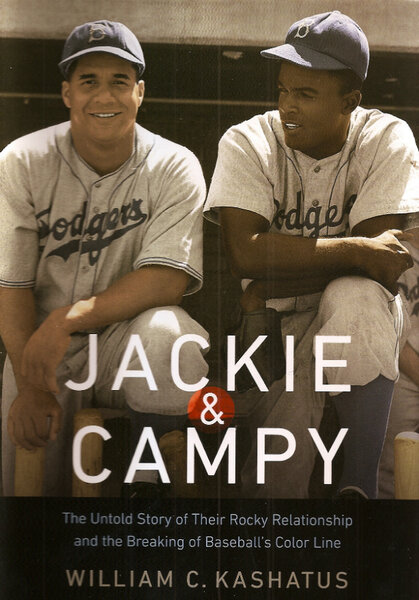By William C. Kashatus
University of Nebraska Press
234 pages
"Campy got along with everybody and liked it that way, while Robinson didn't care if he was accepted by others, particularly the white establishment. He realized that his outspokenness alienated him from most whites, but he refused to remain silent because he understood the stark difference between perceived equality and full equality. That is why he could live in the affluent St. Albans section of Queens, Long Island, with such celebrity neighbors as Count Basie, Lena Horne, and Ella Fitzgerald and still criticize publicly the second-class citizenship of black people. Robinson saw no contradiction in owning a home in an affluent suburb because he had earned the right to live there. But he also wanted other African-Americans to enjoy the same right, which would only come with full citizenship. Conversely, Campanella, who lived in the same neighborhood, kept quiet about civil rights because he didn't want to jeopardize his own status. He simply refused to put his financial success and popularity on the line for other black people. While Robinson may have interpreted his teammate's example as cowardly, Campy viewed it as practical given the racial climate of the time.... 'Jack would get impatient with Campy because he wanted him to speak out more,' recalled Rachel Robinson [Jackie's wife]. "Campy would get impatient with Jack because he thought it spoke up too much, and that is a fact of life.' Their different approaches put the two players on an inevitable collision course as the decade of the 1950s unfolded."





